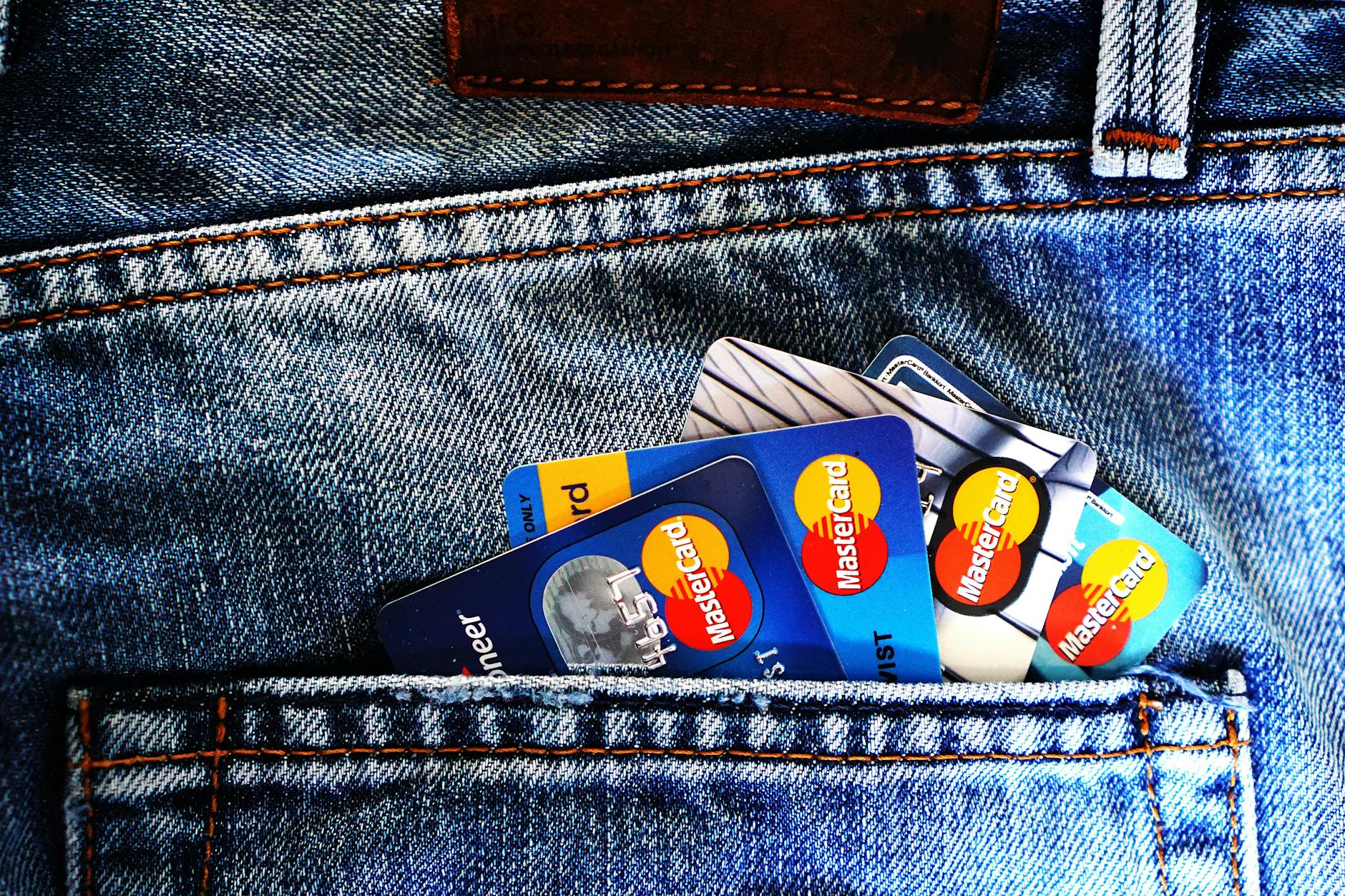Dear reader, today I want to talk about the progress and adoption of cryptocurrencies in the field of retail sales, regardless of whether they are applied to local or online stores. My inspiration to write this piece comes from of a few inconsistencies found in an article on Forbes’ website, written by one of their contributors to which I provide the link in the appropriate paragraph below.
This article will be interesting for you if you are a cryptocurrency investor, merchant, or generally interested in knowing more about the strengths and weaknesses of cryptocurrency when applied to retail and sales. My two-year experience with blockchain technology, cryptocurrencies, and continued collaboration with Crypto-News.net to provide transparent and unbiased contributions to the decentralized intelligence is the foundation of most of my opinions and statements presented below.
Can Bitcoin truly replace credit cards, as one of Forbes’ contributors, Panos Mourdoukoutas recently supported the argument in an article on their website?
The short answer is NO. The long answer takes a little bit more introduction and hand-holding. Let’s start with the source of inspiration, which is the Forbes article and the contributor. They dropped the ball on this one, and stuff like this needs to be pointed out.
Forbes article and message
Mr. Mourdoukoutas does not own any cryptocurrencies or Bitcoin. In fact, he considers them to be a volatile and unstable financial instrument and does not recommend using them. He cautions against investments and takes the time to explain that the markets are speculative and unregulated and that people can expect to lose their entire investments. That is respectable and kind, but at the same time, the opinions and suggestions found in the article are weak and unsubstantiated.
His overall message is that credit card companies and banks are in danger of Bitcoin overtaking their business. Merchants can decide to switch over to Bitcoin as their payment processor, effectively eliminating the transaction fees typically associated with their side of the financial equation, he says. This would leave them in the dust, as it will disrupt the financial market.
The only thing preventing this from happening is the fact that consumers are habitually used to plastic (credit cards) as a means of payment. He quotes Jonah Lehrer, an established American author writing about neuroscience and human behavior to get this message across that people love using credit cards.
According to him, for most people it is beneficial to use a credit card because of the fact that they prolong the timeframe between reward and payment. Jonah Lehrer further explains that cash payments are directly perceived as punishment, as the “wallet literally gets lighter”, so the tendency is towards credit cards.
To quote Mr. Mourdoukoutas who says: “That’s bad news for companies like Visa and Master Card, which dominate the credit card payment industry — and for the banks that issue these cards and take their own cut. But it is good news for Bitcoin investors, as it will raise exponentially the adoption rates for day to day transactions, and boost its price.”
Which seems like an okay and reasonable argument, right? I mean who wouldn’t want Bitcoin prices to rise, especially if you are a Crypto-news.net reader. We know you got some BTC stashed away on a ledger somewhere!
This quote leads directly to what I am trying to correct here in this statement. Publications such as Forbes should not publish unresearched and unrealistic statements.
Critique
Bitcoin will NEVER replace credit cards the mainstream payment method. It is not logical, nor possible. BTC’s attributes, the speed of the network, security, as well as the way it is behaving all points to the fact that it is an asset, i.e. a stock in a global decentralized company called Bitcoin.
This company does not pay out any dividends to stakeholders. Not at the end of the year, not ever. It’s highly communistic in nature because it pays out a dividend every 10 minutes to the workers that are most successful (at this point in time, mining pools). The dividends consist of a block rewards and transactions fees.
Most people don’t even know that this “company” exists, and most of the people that do know, they don’t really care. People have their own problems and challenges to deal with. The blockchain is slowly becoming a well-known and understood word, and I promise to you dear reader, it’s not just a buzzword. (even though a lot of people use it this way)
On the other hand, Mr. Mourdoukoutas is trying to position Bitcoin as a viable solution for merchants on a long-term basis, but this is a huge trap if any serious merchant actually listens to this opinion and starts to accept cryptocurrency in their business. I’m not suggesting the opposite, but I am saying that there are a lot of barriers towards a fully-fledged adoption of cryptocurrencies, and especially Bitcoin today, which were completely missed in the short article Mr. Mourdoukoutas published on Forbes (the well-known, recognized, and respected business publication, you know…)
These barriers towards cryptocurrency and blockchain adoption deserve to be discussed and expressed. They are the problems and challenges that this space has to deal with in order to scale. Blockchain can touch the lives of 7 billion people, and provide value for the entire world. It seems that we are putting a whole lot in the hands of blockchain developers and the technology itself, but every time you mention it, something has already changed.
The lightning speed at which this industry is moving makes me think that it’s normal for people to need some time to catch up, so let me help you out Mr. Mourdoukoutas.
Bitcoin is dead, at least as the primary (or only) option for merchants. Nobody wants to have their transactions buried in the backlog of the Bitcoin blockchain. Especially not merchants who cannot afford to wait 7-14 days (or more) just because the Bitcoin trading is going off the rails again and their consumers have to deal with paying upwards of $20 in fees everytime they want to buy a $10 product.
Because that’s exacly what happened last December when the prices shot up. The transaction volume was so big, that the entire network choked up, and fees for making transactions skyrocketed, making Bitcoin an unviable option for consumers to pay with. I don’t know if you know, but Bitcoin can only take about 8 transactions per second. You can tell me how many retail purchases were made with Bitcoin in this period, and if consumers felt happy about their purchase fees.
Visa and MasterCard are (relatively) expensive for the merchants, but they are also reliable, they have customer support, and the consumers are using their credit and debit cards (which they already have). It sucks to be a merchant in a low-margin industry (such as home appliances), which is why a lot of retail stores also ended up closing down completely.
But credit card companies provide a service with a fee, and there is no cryptocurrency solution right now that can completely undertake all of the needs that merchants have, for a lower or a higher fee. It’s on the way, I’m sure, and there are very simple methods as to how any merchant can start to accept Bitcoin.
But why stop there?
Retail and cryptocurrency adoption
Let’s talk about what is actually possible in terms of cryptocurrency and merchants. Right now, it is possible for any merchant in a well-developed country to accept cryptocurrency and generate instant exchange in USD to their bank using CoinBase Commerce. There are other merchant applications that enable this for other countries that may or may not have better fees. It’s not a sponsored, but rather a practical suggestion.
There are thousands of cryptocurrencies that are available today and over 100 of the most reliable ones can be easily accepted by merchants through the use of tools such as Changelly.io and ShapeShift (which also have some minor fees) to expand the number of options for their consumers.
It’s a fact of the world, where there is a problem solved, there is a fee i.e. a price to pay. And whether we like to hear it or not, banks and their credit cards solve a lot of problems for businesses and merchants (and consumers), so it is safe to say that they were the original disrupter of the cash marketplace.
Cryptocurrency is heading in that direction, but we are not quite there yet. Which is why we should be careful about the advice we give to people, especially if we get published in Forbes, an authority figure for many in business. This only serves to show that you need to expand the number of sources from which you get your information, especially about blockchain and cryptocurrency.
Retail can start accepting cryptocurrencies today, whether it be in actual crypto or instant exchange. It is possible right now, but that begs the question, “Why aren’t there more merchants that accept cryptocurrencies?” and that ties up with a statement that was made earlier.
Most people are not aware, and the majority of people that are aware, they are not cryptocurrency owners or users.
Merchants do not have the incentive to pursue the cryptocurrency markets. They are better off developing on the blockchain to produce pragmatic solutions that would lower their operational costs or generate blockchain-based joint ventures.
Accepting cryptocurrency is a no-brainer for merchants that love the technology, but most of them don’t know much or anything about it. The same applies to their regular consumers and clients with whom business is going great. And they don’t mind paying 2-4% to process credit card payments, for which clients regularly ask to make.
The Asian market stands a much better chance to completely transfer to digital currencies, whether they be decentralized or government controlled. China already uses a lot of digital wallets for micropayments generated by the bank, while Europe and the USA are leveraging mobile banking. It is simply more pragmatic.
Merchants are better off finding ways to mitigate unnecessary costs in terms of operations, accounting, and business relations, and should not expect that accepting cryptocurrency will provide them with a lot of additional revenue or profits.
With this last paragraph, I want to contradict myself and say that all merchants should open up for cryptocurrency payments (after learning about blockchain and crypto for a little bit) because there are no upstart costs, all it takes is a smartphone and a printed QR code, and you pre-generate all of the receipts that are necessary for accounting (especially if you use merchant tools). On top of this, you open yourself up for a new audience that will come to you just because you accept cryptocurrencies.
Summary
Even big players in the information industry are slipping the ball and create informational pieces that do not provide great advice or opinions. It happens, and it’s okay, but readers need to take statements with a pinch of salt.
I expect from you (as a reader) that you will continue to educate yourself about cryptocurrency and blockchain. If you end up coming back to this article, you will find that most of the statements here truthful and come from a place of understanding.
While eventually blockchain and cryptocurrency are expected to either fully replace credit cards or get implemented as a means to lower the fees associated with using them, for now, it’s not going to happen. The level of adoption and the quality of a solution is at least 5 years away (take this prediction with a pinch of salt!) to come up with a proof concept that does not choke itself to death when a lot of users join the network.
While Mr. Mourdoukoutas believes that Bitcoin adoption and usage would be bad news for banks and payment processors, that opinion is inherently flawed.
Unfortunately, it’s neither bad news for Visa or MasterCard, nor generally any good news for Bitcoin investors and I will explain why, but first I need to lay down some crypto wisdom:
This article is not bashing Forbes, I’m sure that they are earning their keep with regular and reliable information for business leaders around the world. But, as I am sure we can both agree, even the big boys drop the ball sometimes. Crypto-news.net is typically not a media watchdog, but when it comes down to cryptocurrency and blockchain, we might as well be one.
The reason why Bitcoin adoption is not bad news for payment processors is that this cryptocurrency has a slower pace, and anything more than 8 transactions per second leads to an increasing backlog and generates a transaction fee market that puts consumers off, especially in regards to small purchases.
It’s not great news for Bitcoin in general, although it might be for some investors which are looking for the perfect opportunity to sell their $13-18k BTC, which is inevitable to happen but will only induce yet another cycle for the speculation market.
If you made it this far, we have a few things to ask of you.
First, we have a Bitcoin Master Guide available on our website. It’s not the prettiest, but we’ve invested a lot of time in researching the subjects, and our original goal was to include the community in the process. Check it out and share it with people looking to learn about Bitcoin. (send it to Mr. Mourdoukoutas)
Second, leave a comment below with answers to the following questions:
- When did you start using crypto on a day-to-day basis?
- What was the single most frustrating experience you’ve had in this decentralized economy?
- What is your favorite, most pleasurable experience?
Let me lead by example, I’ve been in the space for two and a half years since April 2016, and my most frustrating experience is when I was a community manager for an ICO that postponed the start date twice by one-month segments, and then decided to cancel the entire project altogether. Which would have been okay, if they hadn’t commissioned $650k worth of bounty work for their project.
My most pleasurable experience has been the ability to leverage cryptocurrency and open myself up to the global marketplace where I can freely trade my skills and services in exchange for cryptocurrencies. The amount of freedom it has provided in my life is something that I will forever remain grateful for.
Your turn!
Source: Read Full Article





